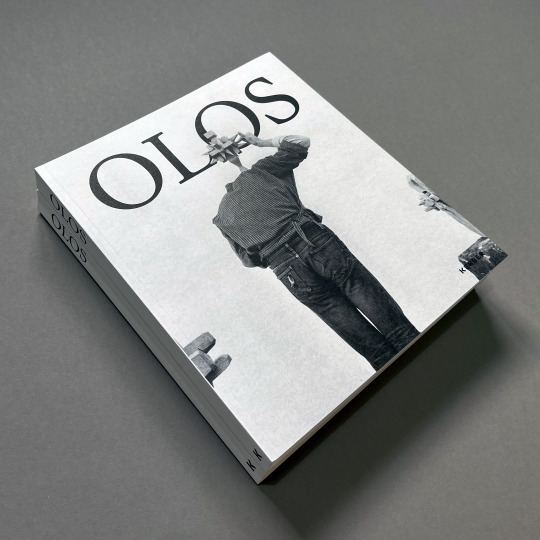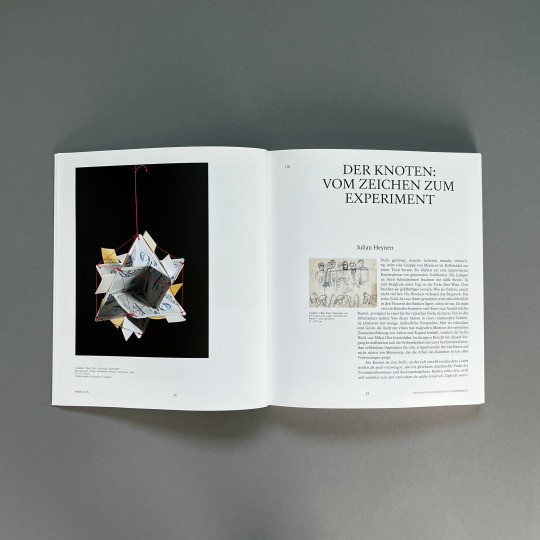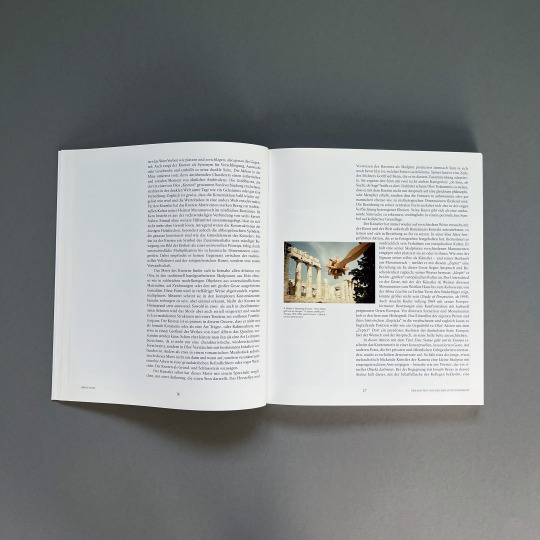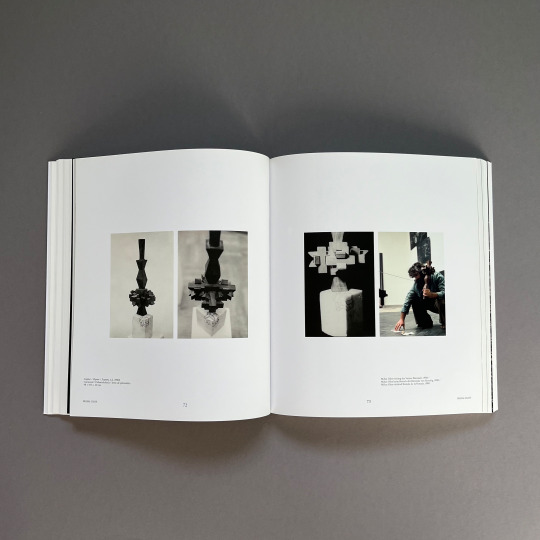#utopian city planning
Text

So this was inspired by the Exodan ships in Becky Chambers' Record of a Spaceborn Few and how they're laid out in recursive hexagons. I kind of just did it to see if I could, and started thinking architecturally / city planner style, so things aren't necessarily how they're described in the book, but how I would want a utopian nested hex city. I put in actual doors in the residential areas which was maybe unnecessary. It doesn't include manufacturing really, and I'm not totally sure where education goes, but there's some flexibility for a lot of things under the "retail" category. I preferred to make it all symmetrical rather than making district centers different. There could maybe be a bigger park around the Center, for composting, instead of "administration", which a society with internet may not need actual rooms for. Instead of handwaving that there's a transport level above this, I specifically tried to lay out a way to walk/ride through from any place to another, with some consideration for privacy, although sometimes traffic will go through your yard. Arguably there could be a 7th scale level, but I'm not going to torture InDesign any more.
The smallest unit is the hexagonal room. Homes are 5 rooms (sometimes 1 or 4 depending on throughway placement) and a half bath around a living room, which has a hallway going to the center of each hex. Hexes are made up of 6 homes around a yard and eating area with a kitchen in the middle, with households taking turns making one big 30 person meal a day. There are six hexes in a neighborhood around each park, and each park has a gym, pool, and public bath center servicing about 180 people. Six neighborhoods surround each district with shops, public spaces, services, and a clinic in the center for around 1080 people. The districts surround an administrative center, and death services in the middle. The whole ship houses around 6500 people.
#becky chambers#exodan fleet#record of a spaceborn few#wayfarers series#hexagons#recursion#utopian city planning#seed ship architecture
31 notes
·
View notes
Text
barbie truly created the ideal society. women in every career field without question and holding positions of power. wearing pink traditionally hyper-feminine outfits while doing so. modern urban planning that creates walkable utopian cities. unique architectural designs. himbos everywhere. neon colors as far as the eye can see. everyone slaying.
7K notes
·
View notes
Text
Frederick Sinclair is a really interesting foil to Mr. House. I mean you start digging into this and it's just parallel after parallel after parallel. Start at the high level. House sinks inordinate amounts of resources into saving the city of Las Vegas - not the people, but the city- from nuclear destruction; as long as the stage endures, he can get anyone to wear the costumes. Sinclair sets up an entirely new "community" totally off-the-grid for the sake of protecting one woman, plasters that place with her likeness. House is a visionary with a 200-year action plan to rebuild society in his image, bootstrap space exploration, and construct an interplanetary empire; Sinclair sank everything he had into building the most secure facility possible for a woman who he knew was terminally ill anyway, just to ensure that her last few years lived in the aftermath of the nuclear apocalypse would be as comfortable as possible- there's a fundamental pessimism baked into what he was doing. Both House and Sinclair relied heavily on automated defensive systems and cutting-edge, esoteric technologies to accomplish their ends, but House built his power base on proprietary robotics and computing technology, much of which he personally designed- an outgrowth of his policy of never widening his circle any more than he absolutely has to. Sinclair, in his naive techno-optimism, outsourced his utopia, grabbing flashy third-party technologies like a kid in a candy store- opening a backdoor for the Think Tank to poison his city and ultimately getting everyone at the Gala Event killed when the holograms malfunctioned and went berserk.
Their management styles are inverse. House allows countless abuses to occur under his aegis because he subscribes to a libertarian-when-convenient philosophy where he doesn't much care what the little people do as long as he gets his cut and they don't rock the boat too much- a hands-off approach that fosters resentment amongst his subordinates, lets the White Gloves and Omertas get up to untold levels of fuckery while Freeside languishes and Benny conspires against him. Sinclair, by contrast, had a sincerely-held utopian-straight-edge safety-first micromanagement approach built into the very bones of the casino, he appeared to genuinely give a shit about the safety of the construction crew on the villa, and he was well-liked by nearly everyone who had any direct contact with him- and yet untold horrors also went down under his aegis, because his myopic focus on building the vault for Vera let Dean Domino and the Think Tank run circles around him, good intentions be damned. Their respective interpersonal dispassion and obsession are on display in how they react to betrayal. House's tone never rises above exasperation when it comes time to clean house of Benny, the Omerta Leadership and the White gloves; he treats them as problems to be solved, gears that are slightly out of alignment; By contrast, when Sinclair learns that Dean and Vera have been playing him, he channels the monomaniacal energy he previously directed towards protecting Vera towards the goal of building the perfect poetic-ironic death trap for her and Dean.
There are some other parallels in their personal lives. For one thing they both trusted a pastiche of a 40s lounge singer a lot more than they should have. They both tried to digitize, immortalize their girlfriends- and the discrepancy in how they went about it is telling. House's recreation of Jane isn't terribly robust, and in terms of House's overall project she's an afterthought. She's more a sock-puppet than a person, a sanded-down copy of a woman who died forever-and-a-half ago, forever agreeable, never saying no. Convenient. Only the most superficial visual elements preserved- an illustration of her face on a robotic chassis. Sinclair was obsessive in recreating Vera, preserving her likeness. It's all over the villa, her hologram is everywhere, her voice is everywhere. The terminal in the lightwave lab in Old World Blues reveals that he was still obsessed with getting her hologram right even after the love curdled into hate. All of it a monument to the real woman, and yet in all of it the real woman is still lost, buried under the mythologized projection. He didn't respect the real person enough to let her know that she was dying. A total failure of preservation from the opposite direction. (Except in the suites, where you can hear her very authentic dying pleas.)
You find both of them in their basements. House only looks a little better than Sinclair, but he's got much more of a voice in the narrative. He took steps to make sure he'd be around to tell you what he thinks about everything, fine-tuned the voice with which he speaks to the world, the face he presents. It matters to him that he gets to tell his own story. We find out a lot about House, from House; but for the kind of figure that he is, a shocking amount of what we learn about Sinclair comes from other people, people who knew him or wrote about him. The only image of him you can find is a downplayed element of a larger mosaic. The two documents you find that're written from his perspective have been buried for 200 years, and they're yards from his corpse. And the more recent of the two is an apology. I mean admittedly at the point where he wrote that apology Sinclair was personally turbofucked regardless. If the cloud didn't get him the holograms would have, or the radiation, or, or, or. You can read some level of ego into what he did in the face of that. But however futile it was, he died in the specific way that he did because he recognized that he'd done something awful, and he was trying everything he could think of to correct it. Somehow I find it very hard to imagine House doing either of those things- admitting fault or putting skin of his own in the game to make it right.
#fallout#fallout new vegas#fnv#mr house#frederick sinclair#meta#vera keyes#fallout jane#dead money#thoughts#fallout: new vegas#robert house
598 notes
·
View notes
Text
Utopian Realism, a speech by Bruce Sterling
*I never posted any lecture of mine on Tumblr, even though Tumblr would seem to have plenty of elbow-room for hour-long, learned, European public lectures (with many lecture slides).
*Might as well give that a try and see what happens.
From the Technology Biennial in Turin, Italy, April 02024.

Thanks for coming to see me. As Loredana Lipperini just pointed out, I am Bruce Sterling, here to deliver my speech on the theme of “realistic Utopia” — the public Utopia, and the private Utopia.
This first slide would be the hero of my remarks today, because he’s the world’s biggest expert on Utopia. He’s called “Raphael Hythlodaeus.” In the Italian editions of the book “Utopia,” he’s “Raffaello Itlodeo.”
Here’s a picture of Raffaello personally meeting Sir Thomas
More, and Sir Thomas More’s friend and host, Peter Gillis, in the year 1515.

The book was published 500 years ago in the Latin language. The author was Sir Thomas More — but Thomas More was a lawyer. He didn’t plan to be a novelist. In the book, he claims that he’s simply writing down the testimony of Raphael Hythlodaeus. The source for the book is allegedly Raphael (according to Thomas).
So, the novel “Utopia” was a kind of a hoax or a joke that Thomas More invented — while he was on vacation.
This book project happened because More had to leave England on official business. He had to leave his private home, and his beloved family, and take part in public life, as a diplomat in the service of the king of England.
So, Thomas More had to travel, and go meet some Spanish officials in the city of Bruges on the European continent. So he left England, and he dutifully journeyed to Bruges. But — after some weeks of diplomatic struggle — he realized that the negotiations were going nowhere. His negotiations were a hoax and a joke, because the king of England and the king of Spain were quarreling. They had no intention of ever reaching an agreement.
So Thomas More had to spend six long months of his life in Europe pretending to be a diplomat and a lawyer, to satisfy reasons of state. He could not achieve anything useful or practical on that mission.
So, More was a bit upset by this situation. He left the city of Bruges, where nothing was happening. He went to Antwerp instead, because he had a friend there. His friend was a fellow scholar named Peter Gillis. Peter Gillis was an Antwerp city official. He was in government, and he was quite well-to-do, a very well-connected guy. So, he could play host to Sir Thomas More. Thomas More was welcome to stay in his private house for no money, and to eat the family’s food at no charge, and just relax as an honored house guest, for several months.
So, Thomas More and Peter Gillis are in this private home, avoiding actual work. They enjoy many free-wheeling, private, intellectual discussions, which are all about law, and justice, and business, and economics, and politics, and the general state of the world.
These two intellectuals agree that the state of the world is pretty terrible. Clearly the real world is quite bad, it’s not a Utopia at all. In fact the first part of the book “Utopia” is pretty much all dystopia. It’s about how bad things are in Europe, and it’s rather realistic too — these are grim assessments.
So, Thomas More and Peter Gillis, while discussing the world together, decide to invent this wandering scholar named Raphael Hythlodaeus. The wise and learned Raphael can speak Latin and Greek, just like they do — but Raphael has been to a country where everything works.
Peter Gillis even invents a Utopian alphabet, and he writes some poetry in the language of Utopia — just to demonstrate that he can play this fun Utopian game with his guest Thomas More.

Peter Gillis is willing to cooperate. He even pretends to personally introduce Thomas More to Raphael Hythlodaeus.
In the book, Raphael appears, and he starts talking. He recites the entire story of Utopia. Raphael speaks the book “Utopia,” aloud. It’s 30,000 words of text, so Raphael recites this book in one long afternoon. It’s a three and a half hour lecture, and Thomas More writes it all down.
However, it’s somehow not boring. It’s a brilliant, world-class lecture, because Raphael Hythlodaeus is quite an amazing guy. Raphael doesn’t look rich or famous. Basically, he looks like a sailor. He’s got a long beard, and he’s kind of weatherbeaten. He’s a long-haired wanderer in beat-up old clothes.
He says that he’s from Portugal — he’s a native of Portugal — but somehow he’s been to Persia, and Ceylon, and spent rather a lot of time in Belgium. He’s been to Brazil. He knows England very well. Raphael Hythlodaeus knows the Archbishop of Canterbury personally.
If you read the book carefully, it turns out that Raphael Hythlodaeus left Portugal — he went to Brazil to explore the new world — and he crossed South America, somehow. Then Raphael crossed the Pacific Ocean, discovering several new countries that nobody else ever heard of. Somehow, after visiting Ceylon, he returned back to Portugal.
So Raphael Hythlodaeus has circled the entire world — several years before Ferdinand Magellan and his fleet tried to do the same thing. Raphael is the first guy to ever travel around the world.
Why?
Why did he do it?
Well, basically, it’s because he’s a tourist.
He derives no political or economic benefit from all this wandering. He just wanders — he tours. He says that he had a lot of money once, but he gave all the money away — to members of his family, and to friends. He refuses to ever serve in any government. He understands law. He understands economics. He’s a super knowledgeable guy. But he never takes part in public politics, because he says that it’s slavery. There’s no reason for him to stop travelling and ever do that work.
Raphael Hythlodaeus is basically a dropout hippie backpacker. He’s a refusenik. He despises power. He despises wealth. He’s rigorously
anti-materialistic. He’s an intellectual dissident.
He’s not a pilgrim of any religious faction. He doesn’t engage in any trade while he travels. He has no career. He’s not a lawyer. He’s not a banker. He’s not a patriot — he’s never going back to Portugal. He cut his ties with the homeland. He’s cosmopolitan.
Any town in the world is good enough for him. Antwerp is just fine. He’s happy to be in Antwerp, although he has no reason to be there. He’s just in Antwerp while talking to Sir Thomas More. He has no wife. He has no mistress. He has no children, no grandchildren. He has no duties. He never has to change clothes.
Every day — he says — he just does whatever he likes.
He just does whatever he likes!
Raphael Hythlodaeus is the most utopian figure in the book “Utopia.” He’s a one-man Utopia. He’s a personal Utopia — because he makes a utopia all by himself, just for himself.
This struggle between the private, personal Utopia, and the political, public Utopia, is present from the beginning of the book “Utopia.”
In the book, Raphael says that he lived with the Utopians for five years. He knows everything there is to know about them. He studied them very closely. He knows the Utopian language, he knows their alphabet, their history, their military, their judiciary, their economic system, their justice system. He knows how they educate the youth. How they raise crops, what they eat, how they dress, the transportation system. Everything.
He just comprehensively knows everything about that society — every driving force that matters, every aspect that makes a country a country.
So Thomas More and Peter Gillis, they make lunch for him. They just invite this world traveller over to the private house they share. They offer him something to eat.
After they eat together, Raphael is quite happy to tell them everything there is to know about the Utopian system. For no pay — no reward. He doesn’t want any credit in the book, either. He just delivers Utopia to them, in one comprehensive talk.
Then Raphael Hythlodaeus just disappears. He has complete existential freedom. He just drifts around the planet like the wind. He’s a Utopian tourist. He’s a traveling one-man show. He’s like an exile on planet Earth.
He’s a fictional character and the book “Utopia” is a fictional book, but Thomas More was a very real person. More was inventing this Utopia game, and making it up in detail, mostly to amuse his host Peter Gillis, who was feeding him, and sheltering him.
But Thomas More ran out of vacation time. He was on vacation in Antwerp, but he had to go back to England. He had to return to his private house, and to resume his public career as a working lawyer.
He had no more time ever to write any fiction. Thomas More never wrote fiction again. He wrote a lot of government tracts. He wrote sermons and legal opinions. No more fiction, though.
After about a year in England, More bundled up all his Utopia papers. He put the game aside, and he sent all the paperwork to Peter Gillis. He said: you know, Peter, I have no leisure time to mess with this game anymore. Why don’t you see if you can do something with it? You participated, so just do anything you want with this Utopia project. Maybe Erasmus can help you.
That would be Desiderio Erasmus of Rotterdam, the very famous European scholar. Erasmus did help — he helped Peter Gillis, and together they published the world’s first edition of Utopia.

That’s the book. You can see that Erasmus is the editor. Erasmus has added plenty of his own witty epigrams to the text. Erasmus knows this book is innovative and strange, and he’s trying to increase sales by including some Erasmus content.
The book was a private joke for Thomas More — because it was only published in Europe. This is him, by the way.

This is the author of Utopia, when he had achieved high rank in the English government. Thomas More doesn’t care about novelists — there was no such profession, there were no copyrights. He’s an intellectual scholar who became a public politician. He works for the English government — the royal court in London. He’s prosperous. He builds a grand private mansion for himself and his family. This is the house:

His book Utopia is not published in England — not while More was alive. The English knew practically nothing about this novel, written in Latin, in Europe, by their Lord Chancellor, rather discreetly.
Here’s Thomas More in his private life.

This a sketch of a portrait that he’s working on, together with a hired artist. More has a gold chain around his neck because he’s become the Chancellor of England. However, his private family life is of great concern to him. Thomas More is writing many careful hand notes on this sketch, so that the artist can paint it properly.
This is a portrait of Thomas More’s entire household. Not just himself — all his relatives, and also his household retainers, everyone under his roof. They’re all gathered in his house, to be recorded for posterity.
It’s really quite a nice private house. It’s got a very high-tech clock on the wall. If you look at it: flower bouquets, vases, curtains….
All the women in this portrait have books. Because they’re all literate. Thomas More has educated every woman in his house. They understand Latin. They can write Greek. They know astronomy, music, mathematics. They’re some of the most highly educated women in the world. He educated them privately. Inside the house. Women could not go to school, but he pulled in the best scholars and he had them give lessons to his wife and his daughters. And retainers. And anybody who’s listening.
More’s private house is a kind of Utopian University.
This is the eventual painting which was made from the sketch.

The fellow in red, that’s Thomas More’s father.
Dad was also a lawyer, and he was also involved in politics. But, he got involved in a serious controversy. He was imprisoned in the Tower of London.
That was dad’s experience. He had to go inside the Tower of London for a month. A terrible place. A dungeon. Political opponents of the English regime, they’re tortured and sometimes murdered in the Tower of London. A very sinister place.
One month of that Tower of London prison experience was plenty for dad. He retired from public life immediately. He never sought political power again. He just went back to the house with Thomas More and the very educated girls. There was plenty to do in there. It’s a private house, but look at it, it’s nice. There are carpets. Dogs. Nice clothes. They have some messengers, like a scholar in the back, writing some mail. It’s so civilized that it’s like a different world.
Things go well for a while — but then the author of “Utopia” himself gets into some very serious and realistic political trouble. Because the king of England is divorcing his wife, who is a Spanish princess. He’s removing the Kingdom on England from the Catholic church. It’s basically a Brexit situation.
He’s seceding from Christendom, and declaring himself the spiritual head of the Church of England.
Thomas More does not approve of this. He’s very pro-European, he’s a diplomat. He knows the idea is terrible. There will be nothing but trouble from it.
He tries to be diplomatic with the King. He gets into all kinds of legal arguments. This is no use. King Henry the Eighth, he’s determined to marry six different women. It’s realpolitik. It’s a political crisis. The king will not back down.
More leaves power, he tries to escape the dismal mess and go on vacation. He just goes back to his private house. Like his dad.
I’m not in the government, he declares. I want nothing to do with government. I don’t seek power. I don’t want wealth.
But his private life cannot protect him. The regime insists that he has to sign a public declaration that the King has moral authority over the Pope. He’s just required to sign this — to collaborate. He refuses. It’s a very long, painful controversy. He doesn’t want to sign. He’s fighting on ethical principle. I’m a private citizen. I’m in my own house. I want nothing to do with politics. You can’t make me sign public documents against my will.
That struggle doesn’t end well. Here is a painting of the author of Utopia getting arrested for treason against the state.

In the foreground of the painting, his daughter is clinging to him. Don’t take Dad from our house! Then in the background of the painting, Thomas More is getting publicly executed. His head is chopped off with an axe on a block.
The details here are interesting. The realism of what really happened to this utopian author. They cut his head off his body in public.
Then, one of the daughters managed to collect his body. She didn’t get the head. The head was boiled in a pot, in order to preserve it. Then it was painted with tar. His head was painted with pitch as a kind of preservative.
Then the head of the author of “Utopia” got stuck on a long spike on the London Bridge.

This was customary justice in England at the time. This definitely happened to Thomas More. In historical fact, his head was placed on one of those spikes on the top of the arched bridge, in much the same way that you can see here in this everyday London woodcut.
After a month of public exposure, of the author’s head on a spike, the legend says that one of his other daughters somehow managed to collect his head. Somehow, she retrieved the head off the spike, even though the boiled, tarred head was supposed to be thrown into the river Thames. That was the custom with the heads of traitors.
She had no house, because her father was a traitor and the house had been confiscated. So she’s homeless, but she’s clever and well educated. She speaks Greek, speaks Latin, she understands astronomy, music, mathematics. She’s a cosmopolitan woman from a private house, and somehow she manages to persuade the “Keeper of the Heads��� to convey her father’s severed head.
She carries it away from the public shame of the London Bridge. It’s not clear what happened to the head. There are a number of various stories about what she did with it afterwards.
To my mind, this is the ultimate “realist utopian” image. If somebody says the word “Utopia” to you, you should think of an adult woman smuggling the severed head of her father away from an execution.
That’s what it’s like. You write “Utopia” and your grieving daughter somehow steals your chopped-off head, and smuggles your head away in a bag.
Now we forget about Thomas More for the rest of the presentation — because he’s dead.
Meanwhile, there’s Italy. Yes, Italy!
In Italy, nobody much cares about More’s head being cut off, but they are reading his book “Utopia.” Because Italians — it turns out they love Utopia. The book’s editor, Erasmus, is very popular in Italy — the University of Torino gives Erasmus a degree in theology. So Italians eagerly read Thomas More’s book in Latin, and they understand that this is speculative political fiction. It’s quite an interesting thing to do.
There’s even a kind of fantascienza genre of utopian writing — not in England, but in Italy.

There’s a whole set of utopias written by various authors.

Most of those authors aren’t English — English people know your head comes off, you don’t want to mess with it — but there are all these other guys writing Utopias.
There’s Tommaso Campanella — his book is still in print. You could go buy it today. It’s kind of interesting.

There’s Ludovivo Agostini. He still has some interest to scholars. The Imaginary Republic.

What a good idea.
This is Anton Francesco Doni.

He’s probably the weirdest author of historic Utopias.
He wrote one that’s rather like science fiction, a weird book meant to be funny and entertaining. Doni’s quite an odd character.

Here’s an Italian political anthology where many Italian political writers are describing the real politics of real places. In the end, they just throw in Thomas More’s Utopia. Why not? Does it even matter if it’s an ‘imaginary country’? It’s about the principles of understanding countries. How do you describe them? How do you explain how they work?
That’s what matters about utopias. That’s the realistic reason to do it.

Now we come to a realist political writer who understands Thomas More. He likes to quote Thomas More. He’s Catholic like Thomas More. He’s a Latin scholar — although he writes in Italian.
Unlike Thomas More, he’s extremely realistic. This is Giovanni Botero.

Or, rather, a well-deserved statue of him. Botero wrote a book which was a utopian manifesto, but for the city of Torino.
Yes, Torino was a planned project with a political theory. Here’s his street here in town — it’s over in the Quadrilatero — the oldest part of the city. The “Via Giovanni Botero.”

Here’s his book, which is all about politics, and it has an
afterword. It’s a political book about government, including a work of analysis about cities.

How do you build a grand and magnificent city?
There are a lot of cities all around the world — how do you make one grand and magnificent? What if Torino was magnificent and grand?
How would you make a small town in Piedmont magnificent and grand? What policy would you pursue? How could rulers take policy steps to achieve “grand magnificence”?
Clearly this seems like a utopian idea. Why would Torino ever be grand? This is what Torino looked like when Botero was writing about it.

He is urging the Dukes of Savoy to make this little village magnificent and grand, but it’s not grand, it’s not magnificent. It’s just a small, typical Piedmontese town with a huge fort in the upper left-hand corner.
As Botero points out in his manifesto, no city in Piedmont has ever been grand. Torino is a modest city, like Asti, like Bra, like Cherasco. Botero himself is from Piedmont. He knows the history of the region. He is frank and honest about it, he’s a realist. There’s just never been a big city in Piedmont. No grand city like Genoa, Venice, Rome… This region of Italy had never had any grand magnificent town.
Why not? Well, Giovanni Botero is very keen on studying history, and geography, and law, and economics, and demographics, industrial policy and geopolitics, and other disciplines that did not have names in his own time. However, he somehow absorbed the political lesson of Utopia about how to imagine the town as a whole, functional place. How to get it to exist, how to get it to work.
Botero has learned to think in a utopian way that is realistic. He tells his readers that determined people can really do it. He doesn’t merely preach that Torino will somehow be grand. Instead, he says: what are the general principles of cities becoming grand?
This realistic map is Torino as a kind of Cherasco. It’s charming, in
Cherasco. I’ve been to the historic town of Cherasco here in Piedmont, and it’s very nice, actually. I always enjoy it there in Cherasco.
Cherasco is the “world capital of snails.” If you’ve ever been to Cherasco, you would know the “Festa della Lumaca.” The Lumache… they’re great. They’re Slow Food, those snails. If you like “slow food” those snails are really, really slow.
It’s fabulous, I love them, and that is Torino without Giovanni Botero. Without the grand plans of Giovanno Botero, Torino is basically Cherasco.
Unfortunately I don’t have time here to discuss Botero’s ideas in detail, but I promise you, if you read his book, you will understand Torino much, much better.
He makes a very practical case for grandeur and magnificence. You don’t do it on a whim. There are political reasons to do it.
Botero says, to maintain a living city, you need three things. First, you need cheap bread. Not just bread, but enough that it’s cheap economically. Plenty to eat, always there.
Second, you need peace, because if the city is under siege all the time, and people are getting killed, and it’s some mere struggle for survival, that won’t allow the town to function. It just won’t be able to work.
Third, you need justice — so that the population doesn’t cut each
other’s throats. There’s no civil war in the streets. People can get on with their productive business.
So, Botero says that peace, bread and justice are the basic necessities. But — they’re very difficult to maintain. Often, they will fail. Then the city will suffer a setback.
But — if the city is grand and magnificent — people will return. You will attract people with a spirited imagination who can appreciate
the grandeur and the magnificence. That is the quality of urban people that you actually want. That’s why you do it.
So that was Botero’s realistic utopian plan. Unlike Thomas More, Botero did not get killed. He could have been killed, because life in the Ducal Court of Savoy was very dangerous, but he was allowed to retire with dignity here in Torino. When he died in Torino, he had the pleasure of seeing that indeed the town was becoming quite grand rather quickly.
So, that’s what a realistic Utopia can look like as a political success on an urban scale. The public utopia — but what about the private Utopia?
Botero shows us how to do it as a politician — and kind of get away with your grand plans — but what about our friend Raphael Hythlodaeus?
Raphael doesn’t want to do any public politics. He just wants to do as he himself pleases, every day. Does he also have a possible victory condition?
I actually think he does — the homemade private Utopia. Just one fellow. Like him. One wandering sailor with no great wealth and rather modest resources.
If he has determination, he can lead a surprisingly different life on private principles. Even in the 20th century.
So, this is the American artist Alexander Calder. A very inventive fellow. He spent a lot of time in Europe. Alexander Calder was a sailor for quite a while, much like Raphael Hythlodaeus. Kind of dressed in rags, not much money, a wandering dropout guy with one pair of shoes. A Paris bohemian artist who spent some time in Montparnasse.
In this picture, Alexander Calder decides to build his private Dream Home.

Out of this wreckage here. A big dead building.
Luckily he has Mrs Calder to help him, so he’s not completely alone. Mrs. Calder here — “Louisa James Calder” — she happens to be a cultured Boston aristocrat who speaks excellent French and has a lot of elite social contacts.

Her family said that she was “looking for a different way of life,” and when she married him, boy did she ever get one.
So here she is, making some French bread while Calder’s reading some art book. If you’re a design critic you would notice this is a very peculiar kitchen. Very peculiar indeed.
Here’s a photograph of his other house in France.

Calder probably made at least half the furniture in this room. His wife made the rugs. She was helping out, she liked to make carpets.

This is his studio. People said it looked like an airplane had crashed into the building. Calder had some unique personal filing system. He did not regard this as as a disturbed environment. This was his idea of efficiency. He was a very efficient and effective artist. He made 20,000 artworks in these studios over a 50-year career.
There are eyewitness accounts of him, grabbing his tools, grabbing pieces of stuff, and never misplacing anything. Nothing ever got lost in there. It’s otherworldly, very private, very weird and very personal.

This is a Calder handmade bread toaster. Why? Why would you need to make a personal toaster? You could just buy a toaster — and this one’s obviously dangerous. It’s not even made of industrial components — it’s made from scrap of no commercial value, made of bits of wood, leftover pieces of stone, and wire.
I’ve looked at it a lot. I’ve tried to figure out why Calder would do it. He built at least five of these. Five completely different self-invented unique toasters.
Why?
Why not just go buy the toaster at a store? Well — he very much wants to hand-make a toaster. He wants his toaster as a radically different toaster, the one that belongs to him. This is a “utopian device” in the sense of something that seems visionary, farfetched and silly.
It’s just not practical, not realistic — but it’s practical and realistic for him. Calder tended to make art out of objects that the world had abandoned. Like the Turinese “Arte Povera” method — find junk, and dress it up, and re-format it.
He had a different value system. To him this is is not junk. To him, this is a struggle for understanding.

Here he’s making forks. Why?
Why would anyone go to the trouble to make forks? Especially out of cheap wire, because these are wire forks that he hammered flat. So that wire would behave more like forks.
I think what happened here — Calder liked hand tools. People called him a machine artist, because he made sculptures that moved, and sometimes had motors. But he only had two machines in his studio — a drill and a grinder.
He had no other machines. He preferred making personal things with his hands. Expressive tools — in his own hands.
So he’s sitting and he’s eating with a fork — and he realizes this is a
tool in my hand. This fork is a tool in my hand. Why isn’t it my personal fork? Why doesn’t this fork have more of my own values?
Right? It’s a Utopian Fork! It’s my personal very different Fork. I don’t care how long it takes me to make it. I want it to express! I want to hold it in my hand and eat with it.
It’s not for sale. These are not commodities. They are what they are — artifacts from a very different value system.
He was a successful artist — at the end of his life, very successful. Calder was quite a wealthy man, and after he died, then his heirs were very wealthy indeed — by artistic standards.
His home in France is an art center now. You can go there and make art in his studio.

These may not quite look like utopian objects, because they’re so personal. But it’s probably what a handmade personal Utopia actually has to look like. You have to dig down to the original basic principles.
It has the freedom of Raphael Hythlodaeus. It’s intelligent. It’s erudite. It’s well traveled, cosmopolitan. But the rules of the world do not apply to it. They just don’t.
It’s “Utopia fai-da-te.” It’s a house as Utopia, it’s private, it’s homemade.
You could you do this yourself, personally, after you left the hall of the speech here. Great — I go back to the house, I make my own Fork. Right? You could, it’s not impossible. You could do it. He did it. He’s proving to himself that he can do it. It’s just — that it’s very rare.
Why? Why do you need a personal Utopia? Why does that matter to you? Where is the benefit? Why not just buy the same toaster that the guy has next door?
Raphael Hythlodaeus could go back to Portugal. He could get a job. He could get married. He could work for the Duke. The private Utopia — it’s like one man trying to to do everything that the world can do for him.
Also, Calder’s alone in the countryside. He’s not in the city. He doesn’t have any critics watching him, as he makes unrealistic forks.
What about the city, the public utopia, the City full of other people? What about — for instance — the Utopian city of Torino? The grand, magnificent Turinese realistic utopia?
What can be said about it, here and now?
Well, I have some passing ideas on that subject — mostly because I have read Giovanni Botero.
Botero wants to use grand magnificence to attract people into the town. His strategy is about a town that can survive. Not because it’s a town that is really good at snails, but because it is a grand city with glamour and charisma. That’s why why you want to do it.
Also, it’s pretty clear that to me that this — realistically — is what Torino has been doing for much of my lifetime. Torino was a city that suffered economic setbacks in the 1970s, and was having some basic Botero-style trouble with the food and the justice system and so forth.
But — when the heavy manufacturing failed — it has been slowly trending toward art, design and especially tourism. Heritage tourism. The Baroque architecture in Turin has not been this sexy in 300 years. Botero’s grandeur is an international tourist draw. It’s becoming like a Turinese Florence.
You might have to visit it over a long period to see this urban
transformation, but it’s realistically happening. It doesn’t look or feel like a utopian project — because it’s basically about attracting tourists.
However, tourists have utopian aspects. Mostly because they’re struggling to escape from their real lives. They’re dying from too much realism — the harsh reality of their crushing lives. They want to experience something that feels different and refreshing, if only for two weeks.
A basic Turinese problem here is that Torino is progressive, but a heritage tourist industry, which is very attractive to tourists, has no avant-garde. Their stifling interest in your past holds you back. You can’t do “futuristic heritage industry.” Why? Because you can’t move forward into the past.
Supposedly.
Supposedly, you can’t show anybody any “new past.” You can only show them old, decayed remnants from the past that have always been here, and have somehow survived to the present day. You can’t show them an exciting, innovative past that no one has ever seen before.
However — if you wanted to be realistic and utopian — you might actually do this.
While Giovanni Botero was alive and writing about how to build Torino, this was Torino’s most grand and magnificent building.

Everybody in Torino knew this building. It was the Mole Antonelliana of medieval Turin. This is the “Tower of St Gregory,” the tallest tower in Turin.
Giovanni Botero saw this Tower every day. Everybody in Torino saw this Tower every day. If he was alive, among us in this room, he’d be horrified to realize it was gone. It would be a tragic loss. A Torino with no “Civic Tower”? A dystopian disaster! Scarcely a real Torino at all.
If the Civic Tower was still actually here, it would attract endless tourists. It happened to be demolished in the year 1801, because Napoleon knocked it down. There were efforts to rebuild it, but these efforts failed due to lack of economic realism.
However, if you did restore the Tower of Saint Gregory from utopian impulse, you could offer it to tourists as an exciting new heritage building. You could do that, because the city of Torino has excellent archives, and there are all kinds of records about exactly what this Tower looked like during the 500 years that it towered over Torino.
The Turinese are very skilled at restoring partially damaged buildings. They do that all the time. So why not just restore the entire building? Why not be bold and inventive, and utopian and realistic, and make a completely vanished building come back to life?
This grand and magnificent Tower has been gone since 1801, but now it’s back again. It was history, but now it exists again. It’s not illegal to restore vanished buildings. Physically, it wouldn’t even be that expensive to do it — certainly not by the standards of many other ambitious Turinese urban projects.
It’s mere custom, and the habit of mind, that makes you think that old buildings can’t suddenly spring back to life out of the records. Of course they can.
When I started this speech, I said that Raphael Hythlodaeus was a tourist. He went to see Utopia. He took a lot of notes. He never settled in Utopia. He never married a Utopian woman. He never emigrated to Utopia. He didn’t ask for Utopian citizenship.
He just witnessed Utopia and then he lectured about it.
But there is no “Utopia for tourists.”
If you’ve ever been a tourist, you know it’s actually a rather dystopian user experience. The experience is more or less horrible.
Maybe you want to go to another country — because you’re a tourist. You want to experience a different way of life. You want refreshment, you want escape from your reality.
Well, first you go to the airport — where you’re treated as a terrorist. They literally go through your luggage, your shoes.
Then you reach the border and there you’re treated as a clandestino, or maybe a smuggler. They’re extremely suspicious and hostile. Those are not even realistic efforts. They don’t really serve the cause of law enforcement or of civil order. They’re actually systems which are built for intimidation. They’re there to make you feel worse and to be sorry that you ever decided to travel. They’re in place to hurt your feelings and discourage you.
Then, as a tourist — when you’re a tourist in a foreign city — everyone hates you. Attempts are made to tell you to enjoy yourself, to eat the expensive food and spend your money on nice clothes, but there’s very little there that’s for your actual benefit.
That’s all just basically advertisements. That’s the business model. The local people want nothing you might offer as a human being, they simply want your cash. They don’t want you around. And for good reasons. When masses of tourists arrive in your city — when you’re a really successful tourist city — it’s like the city dies wherever they step.
There doesn’t seem to be any civilized way to deal with them. Even if you’re a tourist, you hate the other tourists.
These people — tourists — are the people within your city who realistically need a Utopia. You don’t need a Utopia. They need the Utopia.
If you’re a native of the city, you’re used to the city. You cherish the city. You’re a patriot. You want to live in the city with your memories, your urban experiences, that make it your place, your city.
You don’t want your City to be a Utopia — not even your own backyard! Here in Turin, if someone said, “Make the San Donato district a Utopia” — Everyone in San Donato would immediately say: “Make Campidoglio do it!”
“Make Cit Turin do it! Not us!” Then they would force San Salvario to become the Utopia, because San Salvario is full of foreigners and they never know what to say.
So if you want to build a utopia -- realistically -- you should build one for tourists.
I’m not sure what that would look like. I could speculate about it a little. I think it would be mostly psychological.
It would be like a a wellness retreat. Some kind of spa. I’m thinking some large Turinese building like a derelict factory. Empty — like the Cavallerizza. Or the former “OGR,” the dead train repair yard. Some derelict space turned into a big utopian box.
It should be soundproofed. It should be airtight — like a gambling casino, where no clocks are visible. There are no windows. The air should be filtered because the air in Torino is terrible. There are hundreds of tourists inside this utopian box. Maybe thousands of tourists in there.
It costs nothing to get into the box. It’s a free public amenity in Turin — built just for them, entirely for them.
But to get into this Utopia they have to remove their phones. They have to remove their clothing. They have no wallets, no purses, no purchasing power.
No money. No identity. No passports. They have to remove themselves, that’s the key to it. They’re free — free not to be who they are.
What’s in there? Nothing. There’s nothing to buy. There are no thrill rides, no multilingual experiences.
I think the tourists themselves should probably disappear. They should be wearing special effect suits, like this.

Special tourist holiday suits that cause people to vanish. They blend into whatever is projected on the walls. I think that projection is probably Torino — dream-like utopian images of Torino.
Not the realistic Torino, with Turinese people in it, but a tourist utopian Torino, grand, magnificent, unearthly — and there’s no plot. Nothing happens there. Nothing bothers you. Everything is under gentle surveillance. You’re a utopian tourist. You’re just peacefully drifting around through this foreign space, and you’re also foreign. You could sleep in there if you want.
Most tourists, they don’t really want thrills or excitement. They are tourists to escape the everyday trauma of their miserable lives. They’re not moving toward the attractions. They’re running away from their dystopian suffering. So they should be in a utopia, and they should vanish. Nobody has to look at them. They’re engrossed in Utopia. Eventually they come out then maybe they spend some money before they go back to their private lives elsewhere.
Okay, now I’ll close with a few personal words. I’ve spent a lot of time in Torino myself — sometimes on a tourist visa. But I have never once been “on vacation” in Torino.
Never. I never had a job here. I don’t labor here. I’m not a voter. I don’t participate politically. I don’t stare at the tourist attractions. I don’t even eat the tourist food.
For my wife and myself, Torino is our city of romance. We had known about one other for rather a long time, but Torino is where we first met.
It seemed utopian to think that we might ever be together. Because there were all kinds of good, sensible reasons why people from Texas and Serbia should never get married. For the two of us to be a husband and wife, it seemed farfetched and absurd, and yet, there was something realistic about it. Because it was Torino. We were really together there. It was true, it was real life.
A romance is a remote possibility — like mere wishful thinking, an empty dream — that can suddenly spring into real life. You can never plan for that to happen. But when it does happen, you become very aware of it.
It’s not that I went to Torino, or that she went to Torino — rather that we went to Torino. We do participate in the life of the city, but we’re just not Turinese. I can’t claim that we have any conventional purpose here at all. Nothing political, nothing economic, nothing diplomatic. Nothing that fits into a business plan or a government form.
Mostly we’re in Torino because in Torino we are us. In Torino we became us. A rather mysterious and utopian quality for a city to have. So Torino is not Utopia, but we do appreciate your kindness and your hospitality. So, thank you for that, and that concludes my speech.
Thank you for your attention.
126 notes
·
View notes
Text
Today is World Heritage Day
Oiginally known as the International Monuments and Sites Da it is a global celebration of this planet’s heritage. It’s all about increasing the awareness of the importance of the diversity of cultural and natural heritage and preserving this heritage for future generations..
In Scotland we’re lucky enough to have no less than six UNESCO World Heritage Sites. they are;
St Kilda.

The remote Hebridean island archipelago is one of only two-dozen global locations with World Heritage Status for both natural and cultural significance.
The archipelago shares this honour with natural and cultural wonders such as the Historic Sanctuary of Machu Picchu in Peru and Mount Athos in Greece.
I'd love to visit, but it is a wee bit too expensive for me.
Edinburgh Old and New Towns.

Some people have asked me which part of Edinburgh is covered by this title, well the simple answer is all of it!
The capital is a city of many eras, and its World Heritage Site comprises both the old and new towns. The Auld Toon has preserved much of its medieval street plan and Reformation-era buildings along the wynds of the Royal Mile.
The (relatively) New town contrasts this perfectly with neoclassical and Georgian architecture in regimented order.
Antonine Wall.

I've explored many parts of the wall. Constructed around 142 AD by the Romans, the Antonine Wall marked the north-west frontier of their empire. Stretching from the Firth of Forth and the Firth of Clyde, the Antonine Wall separated the civilised Romans from the wild Caledonians.
The Heart of Neolithic Orkney
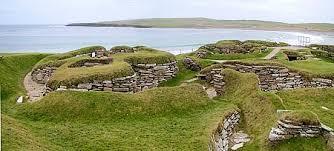
I've not visited The Northen Isles as yet, plans were in the early stages to go this year, but my friend ended up in hospita and is still recuprating, hopefully we can get something sorted when she becomes more able.
The Orkney mainland is synonymous with archaeology. It boasts the mysterious standing stones at the Ring of Brodgar and megaliths at Standing Stones of Stenness, as well as the 5,000-year-old settlement of Skara Brae and chambered cairn and passage grave of Maeshowe. Together these four sites form the heart of Neolithic Orkney, which was given World Heritage status in 1999.
The Forth Bridge

I remember as a bairn drawing and painting the bridge with a steam train going over it, but the train going over the "bumps!"
One of our most iconic and beloved bridges, the Forth Bridge was named a World Heritage Site in 2015 just after its 125th anniversary. The bridge was one of the most ambitious projects of its kind ever attempted at the time. When it opened it had the longest single cantilever bridge span in the world.
New Lanark
The last mill closed in the 1960s but a restoration programme saved the 18th-century village from falling into dilapidation.
It is an early example of utopian socialism in Scotland as well as a planned settlement – making New Lanark an important milestone in the historical development of urban planning. I have never visited, I must say I much prefer my ruined castles and abbeys.
111 notes
·
View notes
Text
“Solar Panels! Electric Cars! Techno-Utopianism! Green Citie-”
[grabs them firmly by the lapels and gets right in their face]
Where you gonna get the metals, City Boy?
Tell me.
[growling] Tell me. Where. You’re gonna get the metals. You gonna open a dig pit in Berkeley? You gonna do it here? You willing to sully your own neighborhood with Industry, for the sake of your glittering utopia, pal?
[baring teeth] Who exactly you gonna have pulling that metal out of the stubborn earth? You better not be planning on using kids. You better fucking address that labor issue, friend.
[shaking them by their coat] You gonna pay ‘em? You gonna pay em enough to make their own neighborhood nice? Do they get to participate in your utopia, or will they just be paying for it?
70 notes
·
View notes
Note
The fact the anon said "go back to your social science bs" as if most of your "social science" isnt based on women's basketball lol. Your idea of a utopia is like. Based on women's sports
I have a Tinkercad account where I design utopian cities that are built around women's sports stadiums. Sustainable walkable urbanist utopia where women's sports is the main community culture. I even have a plan for climate adaptation where women's sports leagues will use megacities instead of airplanes. A league would use two megacities with eight teams each. The teams would play the other teams in their city for three months. Then the top four teams would travel to a third neutral megacity to play against the other top four.
So for example, there would be eight teams in the NYC metro area. And there would be eight teams in the LA metro area. And first they'd play a city league season to determine the top four teams in each city. Then those top teams would fly to Chicago to play a national league season against each other. So the whole process would only require a few flights instead of hundreds.
The ultra ultra utopian version would actually use NYC metro and Mexico City metro for the city leagues. And then top teams would fly to LA for the continental league.
5 notes
·
View notes
Text
ROBINSON: …But there’s what is sometimes called the “techno-utopianism” of Silicon Valley, which often you posit as totally unrealistic—we’re going to merge with machines and upload our consciousness and do things we don’t know how to do.
But these other things you cover, which we do know how to do, are utopian, crazy, and unrealistic.
GHODSEE: Exactly. It’s like the Coalition for Radical Life Extension, these people out in Silicon Valley who are basically trying to be immortal.
If you’re talking about universal health care, that’s totally utopian, but immortality is totally feasible. It’s a really weird double standard that tech bros and billionaires and Saudi princes get to dream up cities in the desert or like this new plan for a utopian city in Solano County in Northern California, but the rest of us are just going to be stuck with a housing crisis and homelessness. Why can’t ordinary people dream in a way that imagines a better future, rather than just constantly ceding this territory of blue sky thinking to the tech bros and the billionaires and the Saudi princes who have the means, at least theoretically, to realize those dreams?
#utopia#blue sky thinking#thinking outside the box#techno-utopianism#visionary fiction#utopian thinking#interviews#solarpunk#current affairs#Kristen ghodsee#writing
37 notes
·
View notes
Text

Laurent Cantet
French film director who won the Palme D’Or at the Cannes film festival with his improvisatory education drama The Class
The social-realist boom in 1990s French cinema produced compelling new voices such as Jacques Audiard, Bruno Dumont and Érick Zonca. The most humane and rigorous of that group was Laurent Cantet, who has died aged 63 after suffering from cancer.
Cantet, who often worked in an improvisatory mode with non-professional actors, won the Cannes film festival’s top prize, the Palme d’Or, for his education drama The Class (Entre les Murs, 2008). Sean Penn, president of that year’s Cannes jury, called the film “a miracle, a perfect movie, just so exciting to see. We walked into the jury room afterward and it was like we had swept up the floor and our work was done.”
A kind of Parisian Prime of Miss Jean Brodie, it was arrived at by cross-pollinating drama and documentary to create what Cantet called “documented fiction”. François Bégaudeau, author of the autobiographical novel Entre les Murs (Between the Walls, 2006), on which the film is based, plays a version of himself: an enthusiastic inner-city teacher who inspires his adolescent pupils but also crosses swords with them.
In one scene, François is taken to task over his use of anglicised names in his mathematical exercises: Bill has 12 apples, Bob has three, but what about, say, Rachid or Aïssata? This playful scene plants the seed for one of the film’s main themes – the use of language to gain leverage, and to reshape the world.
The movie’s sharp-eyed visual style lends these semantic wrangles a strong cinematic dimension. Shooting on location with three high-definition cameras, Cantet achieved an omniscient documentary effect. “This gave us a lot of freedom, allowing us to improvise, to capture the energy of the pupils rather than interrupt them when we wanted a different angle,” he explained. The students and staff in the film, who were all drawn from Françoise Dolto junior high in the 20th arrondisement of Paris, generated many of the scenes in collaboration with Bégaudeau and Cantet.
The movie’s overall tone is one of bruised idealism. “It shows the richness of multiculturalism rather than its weaknesses,” said Cantet. “The film is utopian about the possibilities this kind of setting offers, but pessimistic about the school system in general.”
The Class received an Oscar nomination and became Cantet’s most successful film. But the three features that preceded it were more impressive, withholding even the smallest spoonful of sugar to help their messages go down.
He made his debut in 1999 with Human Resources (Ressources Humaines), in which a business-school graduate starts a management job at the factory where his father is a welder. The newcomer clashes with the union at first, then has a change of heart when he learns of planned redundancies.
That film, which the critic Ginette Vincendeau called “generous, sensitive and innovative”, addresses with Loachian fastidiousness the challenge of reconciling principles and productivity. Both Human Resources and Cantet’s 2001 follow-up, Time Out (L’emploi du Temps), explore how work defines us even in our most interior moments.
Time Out concerns the middle-aged, middle-class Vincent (Aurélien Recoing), who conceals his unemployment from his wife and children, and instead lets his days drip by in service stations and motel lobbies. To retain his role as breadwinner, he cheats cash out of gullible investors he meets on the road.
The film was inspired by the case of Jean-Claude Romand, who lied about his non-existent job, and finally slaughtered his family. Cantet and his regular co-writer and editor Robin Campillo (who later became a director in his own right) stopped short of such horror. “We wanted him to have a disconcerting banality,” Cantet said. “He’s just someone who slips and trips down a certain pathway.”
Some audiences found a note of hope in the final scene, in which Vincent attends a job interview. Cantet was quick to scotch that reading. “The notion of work is so full of wealth and worthiness that the prospect of Vincent finding employment again is obviously a winner,” he said. “But not having a job can be of a certain wealth, too. For people like him, work can only be slavery, so to see the last scene as a happy ending is a denial.”
Heading South (Vers le Sud, 2005) applied Cantet’s usual scrutiny to a different milieu, albeit one still steeped in exploitation and commodification. Charlotte Rampling and Karen Young play sex tourists at a Haitian beach resort in the late 1970s who find themselves competing for the same 18-year-old gigolo (Ménothy Cesar). Neither woman is interested in the young man’s plight under the corrupt regime of President “Baby Doc” Duvalier, though eventually the country’s political strife eclipses their feud. The film has a starkly Fassbinderesque view of the intersection between sex, money and power.
Cantet was born in Melle, a town in western France, and raised in nearby Niort. His parents were both teachers. He attended university in Marseilles, then studied at the Paris film school IDHEC (L’Institut des Hautes Études Cinématographiques), where he met Campillo. Their first full-length collaboration, Les Sanguinaires (1997), was made for French television as part of a project looking ahead to the new millennium. (Human Resources was also made for TV, but earned an international cinema release.) Asked about the 13-year gap between graduating and directing Les Sanguinaires, he said: “I spent a long time trying to discover what I wanted to say in a film.”
Reactions to the movies he made after The Class were mixed. An adaptation of Joyce Carol Oates’s 1950-set novel Foxfire: Confessions of a Girl Gang (2012) met with muted acclaim. Return to Ithaca (2014), about a reunion of five friends in Havana, made few waves. It was Cantet’s second project in the city: he was one of seven directors who contributed to the portmanteau project 7 Days in Havana (2012). It was part-funded by Havana Club rum, which features prominently on screen.
His 2017 drama The Workshop (L’Atelier), about the relationship between a female teacher at a summer writing school and a male teenage student radicalised by the far right, revived the simmering tensions of Heading South, and represented a real return to form, though in fact the film had been gestating for more than 15 years. Cantet’s final picture, Arthur Rambo (2021), was inspired by the real-life case of Mehdi Meklat, and follows a young writer from the banlieues whose career is wrecked by offensive social media posts that predate his fame. He was working on a new film, The Apprentice, at the time of his death.
“My characters are never heroes,” Cantet said in 2008. “They always have weaknesses. That’s what motivates me to write them. They are people looking for their place in society: a place which is much harder to find when you don’t march in step with the rest of society. It’s something I can recognise in myself: keeping the world at arm’s length. Perhaps making films is a way of making up that distance.”
🔔 Laurent Cantet, film director, born 11 April 1961; died 25 April 2024
Daily inspiration. Discover more photos at Just for Books…?
6 notes
·
View notes
Text
5 QL Adaptations I'd Love To See in 2024 (or beyond).
2023 was definitely an eye opener for me in terms of finally (oh so finally) getting a chance to properly immerse myself in QL media and oh boy have I had a lot of fun with my journey so far. There have been highs, there have been lows, there have been laughs, and there have been tears. There have also been many many amazing shows and adaptations, quite a few of which I still have to catch up on.
Still, just because I have a backlist (is that the right term to use here? Probably not) as long as my arm, that won't stop me from dreaming and looking ahead to the future and look to the future I will because, up until this year, I was definitely I was definitely someone who got most of my QL fixes through reading them rather than watching them and, as a result, I have some suggestions, requests, and some wild dreams from books, webtoons, and mangas I would love to see brought to life in 2024 (or in 2025, I'm not fussy).
1. Our Dreams At Dusk - Yukhi Kamatani
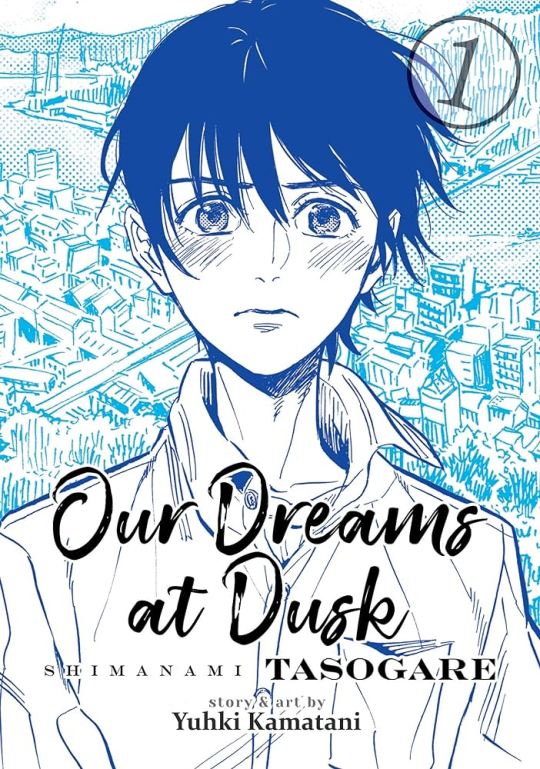
Tasuku Kamame has just recently moved to a new school when a classmate nearly outs him as gay. Struggling accept his own desires and scared of facing future filled with rejection and social ostrisization, Tasuku is contemplating doing the unthinkable when he meets a mysterious woman named "Someone". This chance encounter introduces Tasuku to the local drop-in centre, a place where he finds community, friendship, and a chance to discover who his is and who he wants to become.
First serialised in 2015 this four volume masterpiece of a manga series is frustratingly and upsettingly difficult get hold of nowadays but oh my god it should be required reading everywhere (and I'm only half joking). A truly queer work with representation spanning nearly all the LGBTQIA+ acronym across a multi-generational cast of characters, it's a work with so much love (and magic) at its heart.
This could be a breathtaking drama, Japan, all you have to do is reach out and grab it.
2. Concerning Our Daughter - Kim Hye-Jin

An unflinching look at the prejudices which permeate modern Korean society (and the world all over as well), Concerning My Daughter centres around the fraught relationship between a mother and her queer adult daughter. Told from the perspective of the mother, struggling to come to terms with her daughter's choice to live openly and proudly as a lesbian as opposed to living a "normal" life, this story works to examine and unpick what it means to "fit" within society's boundaries.
A scathing but equally moving critique of homophobia, heteronormativity, ageism, discrimination, and tradition, Concerning My Daughter is not a fun ride by any means, but it is important and, in the right hands, it has a potential to be an earth-shattering drama.
3. No.6 - Atsuko Asano and Hinoki Kino

This might not be gays in space but it is gays in a sci-fi setting and that's more than enough for me. Set in the seemingly utopian city of No.6, this series tells the story of Shion, a boy born to wealth and privilege and who seems set to live a "good" and "productive" life but who finds his life completely de-railed after a chance encounter with the mysterious and enigmatic Nezumi.
A series full of adventure, intrigue, and shady government plans and topped with themes of sexuality, gender expression, class, and environmentalism, No.6 would be an incredibly fun drama to watch (although the production company might have to shell out Alice In Borderland level funds to make it reality).
4. Sasaki and Miyano - Shō Harusono

A BL manga series about BL manga, Sasaki and Miyano is honestly just a whole lot of fun. The series follows the two eponymous high schoolers after a chance incident leads Sasaki to discover Miyano's deep love of BL manga (and a bout of curiosity leads him to ask for recommendations). The story that follows centres around the budding friendship and eventual romance between the two, leaving plenty of time for comedy, hijinks, and deep dives into different BL tropes, as well as an (un)surprising amount of self-discovery, growth, and growing up.
It's fun, it's funny, the relationship is On Point 👌 and Sasaki and Miyano are two of my favourite characters I've ever had the pleasure of reading about. Make it, Japan, make it now and no the anime was not enough for me.
5. Ordinary Men - Lesh

A sweet, lively, and quite frankly lovely story about the very frazzled and done-with-it-all Nurse Jiyeon and his younger, puppy-like admirer Dr Kim, this webtoon had me tuning in every week while it was coming out and still has me coming back for more. The ups and downs of their courtship and eventual relationship are truly a joyful (and at times hilarious) ride but it's characters; their endearing traits, their growth, their relatability, and their love for each other that really makes Ordinary Men shine. You can see why they love each other, because you love them too.
Anyway, it is no secret that Korea excels at hospital dramas so now I think it's time for it to turn its hand to making Ordinary Men come to life, preferably in full length drama form.
5.5 Honourable Mentions (it's not cheating if I keep it brief)
My Gorgeous Fiancé - Kwak Sae and Teunteun

Centering around two guys getting engaged to each other because of a bet between their parents and grandparents, My Gorgeous Fiancé was perhaps the most enjoyable fever dream I've ever had and now I want to see it on screen.
You Get Me Going - Moscareto and Oh Doyeon

Bed Friends but make it Korean, that's all I'm going to say.
Our Youth - Hinoon

Take all your straight-A student x school bad boy stories and add a heaping helping of tears, I actually felt this one deep in my heart, as in I actually felt my heart lurch reading this. Yes it's a high-school romance but it's also so so much more than that and I'd quite like to share the experience with the BL watching world.
#japanese bl#jbl#korean bl#ql#ql drama#there are no thai recs because it is hear tearingly difficult to find translates thai literature atm#and the translated books on meb have been adapted already#one day though#2024 wish list#or perhaps more accurately 2024 pipe dream#but that's not going to stop me 💪#i want things I can't have#its fine#*cries*
12 notes
·
View notes
Note
but like I unironically think disney parks are a glimpse of what good infrastructure could be in the US if we gave a shit about anything the way we gave a shit about mickey mouse. if you've ever been to disneyland with someone in a wheelchair you know just how thoughtfully designed a lot of the park is in the service of equity. Custom cars, rail transfers, line protocols, all seamlessly done to help a small portion of society experience what everyone else is experiencing.
Also just the efforts they take to make mundane things like just waiting in line or existing to be enjoyable. It sets them apart from other theme parks, and we should treat city planning like that instead of just treating our streets and outdoors like just a means to a destination. It's ironic that one of the most capitalistic places today has traces in its roots of utopian, socialist ideals.
But yeah also rail and public transportation.
Yeah I think it's good to acknowledge the things that Disney does right, even while we criticize the things that deserve criticism! Disney parks are also pretty well-known for having a lot of rides that are accessible for larger people, stuff like ride swaps to make things easier for parents with small children, and they have decent accommodations for blind people as well (I watched a video from Molly Burke about that, it seemed like Tokyo Disney had better/more accommodations than Disneyland but they had several things to make things accessible here as well).
I'm sure there are other things as well, I'm just not trying to talk about stuff I don't know.
I've been seeing a lot of no nuance takes in my notes, which is extra annoying because I don't think my post made it sound like I believe Disney as a company is unquestionably great? I don't think I even really said anything about the company, just the fans. The point is, we can let many things be true at the same time
33 notes
·
View notes
Text
I saw a description that characterized urban planning as an inherently utopian field because you're constantly working towards creating a better future for your city that is a long lasting project you will probably never see the finality of.
And that really spoke to me
4 notes
·
View notes
Text
This week, as every week, Brexit enfeebled the UK. It was not a one-off disaster, like a fatal heart attack. Rather Brexit is showing itself to be a debilitating disease that never grants us a moment’s peace.
In the past few days
The post-Brexit trade talks between the UK and Canada collapsed. Despite all the promises of global Britain crossing the clear blue oceans and cutting deals with India, the US, Canada and China, we remain isolated.
After years of being too scared to actually take control of the UK’s borders, the government promised checks on imported food from the EU. The effect, according to the food industry, will be to raise prices and produce shortages. (Romantics searching for flowers for Valentine’s Day may well have their work cut out, despairing florists are already warning.)
Brexit took away the right of Brits to live and work where we pleased in the EU. For a while in 2023 it looked as if France would allow British expats to stay for longer than 90 days at a stretch. But the French courts blocked that concession to second home owners in the Dordogne.
Meanwhile the Brexit inspired border in the Irish Sea between Northern Ireland and the rest of the UK continued to enrage Ulster Unionists, who in their hearts must now know that English Tories have played them for fools.
Finally, the Guardian reported that the EU's plans to increase bulk medicine procurement across the bloc risk creating shortages in Britain.
That’s just in the past few days.
And yet the politicians who promised the electorate that leaving the EU would turn us into a world leader are simply not held to account.
You would have to be 35 or older to remember how the BBC used to deal with politicians who failed to deliver on their promises. In 2003 Tony Blair backed the US invasion of Iraq on the grounds that Saddam Hussein had weapons of mass destruction.
He didn’t.
BBC journalists tore into the then Labour government. Its ministers had taken us to war on a false prospectus, they claimed. Lied, in short.
And yet in a dereliction of journalistic duty the BBC has let the false prospectus of Brexit pass without the smallest attempt to remind its authors of their false promises.
Here is Daniel Hannan, the Zelig of British nationalism. For more than two decades, he popped up at what felt like every right-wing meeting and rally, urging ever more Utopian fantasies on the luckless British public.
In 2016, he promised the revival of depressed British cities, a Silicon Valley in the East End of London, and falling prices and booming wages for us all.
Is he or any other Conservative or Faragist politician questioned to within an inch of his life by the BBC?
Of course not. Continuous funding cuts and right-wing attacks have destroyed the corporation’s ability to provide a vital news service. It’s given up on democratic accountability.
I can make one argument in its defence. If a BBC presenter were in the room with me now, I am sure they would say that the Labour opposition is giving them nothing to report. It is staying silent for fear of alienating elderly voters. The Liberal Democrats shut up for the same reason.
In its politicians and media, the UK is like the caricature Victorian family that puts on a show of respectability and says nothing about its dirty secrets.
No one, however, can shut up Professor Chris Grey, and our culture is the better for it. His Brexit & Beyond blog is the best source of information on our national malaise, and I was delighted to have him on podcast.
I will write a longer piece, which will bounce off our conversation about the purity spiral on the right Brexit set off. With a bit of luck that should be up tomorrow or on Wednesday. I am also working of a read on the lessons from the 1920s for the 2020s.
6 notes
·
View notes
Text
I NEED TO DUMP THINGS ABOUT MY WRITING PROJECT FOR MY CLASSES FROM HIGH SCHOOL OKAY. I FOUND MY OLD NOTES ABOUT THE PROJECT AND OMG-
IT WAS FUCKING AMAZING.
it was a project about creating a history, and I created a short book (that I had to write only in two weeks so it's not properly finished SUE ME) calle MoonSide or MoonFloor idk something with Moon and it was about a rivalry between several powerful/bourgeois families who, in a dystopian scenario, had the fate of the world in their hands (because of all the climate problems and basically the privileged bourgeoisie fucking the earth right in the ass. raw.)
well, the protagonist was the son/descendant of one of these families...
in a tragedy that I absolutely loved writing, a rival family set up a whole scenario to kill the family of the protagonist, stealing their ideas on how to save the planet - basically, it was putting an old space colonization project into practice, by sending (the most privileged) humans to a lunar base that they had designed, something with some fancy oxygen production technology from whatever, I didn't delve much into the possibilities in the two weeks I had, while another healthy fauna and flora recovery project started on earth, restoring oceans and forests and all that utopian shit that I wanted, at least this last part, to be true. professionals and volunteer labor would stay on the planet to help and regulate everything, and it would be a truly perfect plan like our protagonist's family planned...
but they didn't have that chance because, obviously, everyone died... except the protagonist!!! (please pretend to be shocked) who ended up going to the moon after the death of his relatives, in an attempt to make the murderous family less suspicious. The thing is, he wasn't exactly sane after all this experience, and he dedicated his entire life to putting an end to the family that murdered his relatives - and who now dominated that lunar city through a government very suspiciously, almost handed for them.
Is now a good time to say that this story involves powers? lmao. space apparently, at least in this universe, has some pretty sinister electrical storms that happen from years to years, and since they started sending ships to the moon they started to be attracted to the trajectory that the maves usually occupied, almost like a for lightning. the things is that they have a very strange effect on human beings, giving them extraordinary abilities (fantastic quartet style. that's right. I had just seen the film in the time, I think it influenced my creative process), and our protagonist gained one! he disintegrates anything with a touch, he has questionable control over the ability, and can also project it if he wants, like waves of pure destruction rushing through the air in whatever direction he leads it.
After that there is nerdy planning on computers, hacker stuff, invasion of a government building, attack on the oppressive forces that lead the country and things like that :)
ALL THIS WORK BELONGS TO ME, somestardeww, AND I DO NOT ALLOW COPYING, TRANSLATION OR THEFT OF MY WORK.
plus, you can create your own universe, let your imagination fly! <3
#writing ideas#writeblr#writing#original character#original universe#original art#original work#original worlds#creative writing#writerscommunity#writer stuff#on writing#should i take this project back i really want to but idk at the same time lol
5 notes
·
View notes
Text
Wolfstar WIP- Sirius’ Letter
Housebound during Summer holidays, sixth year.
Remus,
DO NOT EAT THE MUSHMELLOWS WITHOUT ME. DO NOT EAT THEM. All Marauder plans on hold until I prison-break out of this shit hole.
What to do instead, you ask? Light a candle. Tea and biscuits. Break out a poetry book. Pray that my cousins won’t cut me into little rectangles and feed me to a goose. Grimm place is utopian compared to tomorrow’s promise.
To answer your question, I have no idea what they want the house for. I refuse to believe they’ve actually been alone together. Regulus and I were- and this is a secret- product of chanting and animal sacrifice. Just picture me and it makes a lot of sense.
How’s your shoulder by the way? Bold of me to criticise. I take after my mother, who complains about me though I am completely, unequivocally, her fault.
Oh! Did you go to Nashville Rooms? Shimmy shammy on the grimy dance floor? Smear your good vibes all on the great glittering city? If so- unfair! If not- why not?
Maybe see you soon.
Yours loyally, ghoulishly and with beautiful penmanship,
Sirius Potter
(Like my new last name? Picked it myself. Or would Lupin be better? )
Ps. I’m serious about the marshmallows. I just want us to do it all together.
PPS. Don’t reply. Tell James and Pete they smell
#wolfstar#marauders#sirius black#remus lupin#remus x sirius#wolf star#marauders fanfiction#wip#my writing
9 notes
·
View notes
